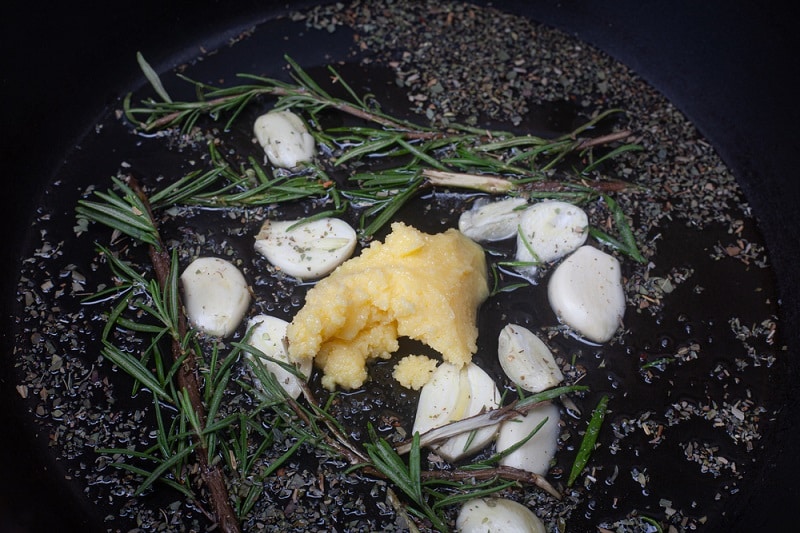
Rosemary is one of the most powerful tasting herbs in the average kitchen, and a little goes a long way.
Its distinctive pine-leaf smell and slightly bitter taste pair well with strongly flavored meats like mutton, lamb, or venison.
It’s also a wonderful addition to potato dishes. It’s a match made in heaven for mushrooms and oily fish too.
The addition of rosemary gives your dish a distinctive aroma and taste, but what happens if you overuse rosemary in your dish? Your dish will end up with a strong, bitter, unpleasant taste.
Moreover, the overpowering aroma and taste will detract from the natural essence of the ingredients. You want it to highlight the star ingredients, not mask them.
Don’t worry if you’ve added too much, though – we have you covered. This article will guide you in fixing your ruined dish. Stay with us!
How Do I Fix the Taste of My Dish After Mistakenly Adding Too Much Rosemary?
Even experienced cooks sometimes have a slip of the hand and add too many spices and herbs in their dishes.
Here is a little tip for you: always add herbs such as rosemary towards the end of your dish’s preparation, unlike spices you add in the beginning or middle.
Also, remember when using dried herbs that are more concentrated in flavor compared to fresh ones.
So, if a recipe calls for one tablespoon of fresh chopped rosemary, half a teaspoon of the dried product should be enough to produce the same flavor.
However, if it’s too late and you already have too much rosemary in your dish, here is everything you need to do to fix it:
1. Remove Rosemary Leaves If You Have Added Them

This solution can only work if you have put sprigs of rosemary leaves into the dish instead of using a powdered or chopped form.
Use a strainer to pull off the rosemary leaves from the surface of the pot. This will ensure that no more of the rosemary’s flavors go down into your dish anymore.
2. Dilute Your Dish!

Diluting your dish is a common fixing practice for many cooks. Well, you can use it selectively for rosemary if you have added too much of its content to your dish.
For example, you can do this by adding more gravy, cream, or wine to the sauce, depending on the recipe.
3. Balance the Flavor

Instead of watering down the entire dish, you can try to balance its flavors and aroma with the addition of other spices and herbs.
- Rosemary has a bitter flavor, so the first step is to balance this with some sweetness. Try honey, a date paste, or fruit such as chopped raisins, depending on the dish.
- Adding some savory umami taste can balance too much rosemary. Again, it depends on the dish, but you can do this by using MSG like stock cubes. Be careful not to use too much as this can add too much salt. Other umami tastes can be derived from Worcestershire sauce (pairs brilliantly with rosemary in meaty pies and stews), soy sauce, or fish sauce.
- Add some acidity. Use ingredients like tomatoes, lemon juice, or vinegar. If the dish needs creaminess, plain yogurt or sour cream can add the required acidity while lending a silkiness to the sauce.
4. Bulk it Out

If you have enough ingredients left, add extra bulk to the dish like carrots, potatoes, or lentils. This will dilute the herb’s taste.
Note that this trick will obviously increase the amount of food, but you can always freeze it for later use.
That’s it! Please don’t despair if you’ve added too much rosemary, and whatever you do, don’t throw the food out before you have tried some of these simple fixes.